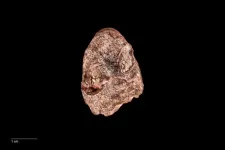(Press-News.org) Research Highlights:
A study of nearly 4 million young adults under age 40 in South Korea found that those who had ideal cardiovascular health were nearly two-thirds less likely to develop heart disease, stroke and/or kidney disease during a 12-year follow-up period.
Adults who had low heart health scores at study baseline in 2009-2010 but improved their cardiovascular health thereafter also had a reduced risk of heart disease, stroke or kidney disease compared to people with persistent low heart health scores.
Embargoed until 10:30 a.m. CT/11:30 a.m. ET, Thursday, March 21, 2024
CHICAGO, March 21, 2024 — An analysis of health data for nearly 4 million young adults in Korea found that those who had ideal cardiovascular health had about a 65% lower risk of developing heart disease, stroke or kidney disease later in life compared to people with low heart health scores, according to preliminary research to be presented at the American Heart Association’s Epidemiology and Prevention│Lifestyle and Cardiometabolic Scientific Sessions 2024, March 18- 21, in Chicago. The meeting offers the latest science on population-based health and wellness and implications for lifestyle.
In a 2023 scientific statement and presidential advisory, the American Heart Association highlighted the link between heart disease and chronic kidney disease and the importance of improving cardiovascular health to prevent them.
“Cardiovascular disease is deadly, and kidney disease is quite common, even among younger adults,” said lead study author Hokyou Lee, M.D., Ph.D., an associate professor of preventive medicine at Yonsei University College of Medicine in Seoul, South Korea. “These two diseases should be prevented together because they often coexist or increase the likelihood of one another. However, the importance of ideal heart health behaviors and factors in young adults have often been overlooked due to their lower short-term risk of cardiovascular and kidney diseases.”
In this study, researchers reviewed data from the 2009-2010 Korean National Health Screening program to explore how cardiovascular health during young adulthood affects the risk of developing heart disease, stroke and kidney disease later in life. Participants’ heart health was assessed and scored using the three modifiable lifestyle behaviors and three health measures: being physically active, maintaining a healthy weight and quitting tobacco and blood pressure, cholesterol and blood sugar, from the American Heart Association’s Life’s Simple 7 metrics. (Note: In 2022, sleep health was added to the seven metrics in the Association’s new Life’s Essential 8 measures for optimal cardiovascular health.)
The analysis found:
Young adults with perfect heart health scores at enrollment had a 65% lower risk of developing cardiovascular or kidney disease during the 12-year follow-up compared to people with zero ideal cardiovascular health metrics. Note: In this study, a perfect heart health score was 6 out of 6 because a measure of diet was not available for participants.
The risk of developing cardiovascular or kidney disease decreased gradually with higher heart health scores.
People whose scores improved from low to high during follow-up also had a lower risk of developing cardiovascular or kidney disease compared to people who had consistently low heart health scores.
“Less than 1% of the young adults had ideal heart health scores at the beginning of the study, and, unfortunately, about half of those with perfect or near-perfect cardiovascular health eventually had lower heart health scores within a few years. However, fewer of the young adults with perfect or near-perfect cardiovascular health whose scores decreased experienced cardiovascular and kidney diseases than young adults who began with low heart health and remained that way,” Lee said. “Our study highlights the importance of achieving ideal cardiovascular health during young adulthood and maintaining or improving it throughout life. More effort is needed to raise awareness among young adults about implementing and maintaining heart-healthy lifestyle behaviors early in life to help them live longer, healthier lives.”
Study background information:
The study included 3,836,283 adults in South Korea who did not have a history of cardiovascular or kidney disease.
Participants self-identified as female (38.2%) and male (62.8%).
Participants were ages 20-39 years old, with a median age of 31 at the beginning of the study.
The study’s limitations included that it did not use the new Life’s Essential 8 health metrics to define cardiovascular health. In addition, dietary information about participants was not available, and the study included only people living in South Korea, which limits the generalizability of the study’s findings to other populations.
“The findings underscore the importance of early awareness of risk factors and intervention and the adoption of healthy lifestyle behaviors in young adulthood to prevent cardiovascular and kidney diseases later in life. Moreover, the research indicates that even individuals with initially low heart health scores who improved their cardiovascular health over time experienced a reduced risk of diseases compared to those with persistently low scores. This highlights the potential for positive health outcomes through lifestyle modifications,” said
Monica C. Serra, Ph.D., an associate professor and research investigator in the department of medicine in the Division of Geriatrics, Gerontology & Palliative Medicine and the Sam and Ann Barshop Institute for Longevity and Aging Studies at UT Health San Antonio in San Antonio, Texas. Serra is co-chair of the program committee of EPI│Lifestyle Scientific Sessions 2024.
“The use of the American Heart Association’s Life’s Simple 7 metrics, including modifiable behaviors such as physical activity, weight management and tobacco cessation, along with biometric measures like blood pressure, cholesterol and blood sugar, provides a comprehensive assessment of heart health. It is noteworthy that the study did not include dietary components, and the addition of sleep health in the Association’s new Life’s Essential 8 was acknowledged,” she said. “Overall, the research contributes valuable evidence to the importance of cardiovascular health maintenance in young adulthood for long-term disease prevention.”
Co-authors, their disclosures and funding sources are listed in the abstract.
Statements and conclusions of studies that are presented at the American Heart Association’s scientific meetings are solely those of the study authors and do not necessarily reflect the Association’s policy or position. The Association makes no representation or guarantee as to their accuracy or reliability. Abstracts presented at the Association’s scientific meetings are not peer-reviewed, rather, they are curated by independent review panels and are considered based on the potential to add to the diversity of scientific issues and views discussed at the meeting. The findings are considered preliminary until published as a full manuscript in a peer-reviewed scientific journal.
The Association receives funding primarily from individuals; foundations and corporations (including pharmaceutical, device manufacturers and other companies) also make donations and fund specific Association programs and events. The Association has strict policies to prevent these relationships from influencing the science content. Revenues from pharmaceutical and biotech companies, device manufacturers and health insurance providers and the Association’s overall financial information are here.
Additional Resources:
Multimedia is available on the right column of the release link https://newsroom.heart.org/news/adults-younger-than-40-with-ideal-heart-health-had-lower-heart-disease-stroke-and-kidney-disease-risk?preview=a61859e49eaeafc4cddaf92ecb865f5c
After March 21, view abstract 50 in the Epidemiology and Prevention│Lifestyle and Cardiometabolic Health Scientific Sessions 2024 Online Program Planner.
AHA news release: Heart disease risk, prevention and management redefined (October 2023)
AHA health information: Life's Essential 8
For more news from AHA EPI│Lifestyle Scientific Sessions 2024, follow us on X (formerly Twitter) @HeartNews, #EPILifestyle24.
###
The American Heart Association’s EPI│Lifestyle Scientific Sessions 2024 is the world’s premier meeting dedicated to the latest advances in population-based science. The 2024 meeting is in-person only, Monday through Thursday, March 18-21, at the Hilton Chicago. The primary goal of the meeting is to promote the development and application of translational and population science to prevent heart disease and stroke and foster cardiovascular health. The sessions focus on risk factors, obesity, nutrition, physical activity, genetics, metabolism, biomarkers, subclinical disease, clinical disease, healthy populations, global health and prevention-oriented clinical trials. The Councils on Epidemiology and Prevention and Lifestyle and Cardiometabolic Health (Lifestyle) jointly planned the EPI│Lifestyle Scientific Sessions 2024. Follow the meeting on Twitter at #EPILifestyle24.
About the American Heart Association
The American Heart Association is a relentless force for a world of longer, healthier lives. We are dedicated to ensuring equitable health in all communities. Through collaboration with numerous organizations, and powered by millions of volunteers, we fund innovative research, advocate for the public’s health and share lifesaving resources. The Dallas-based organization has been a leading source of health information for a century. During 2024 - our Centennial year - we celebrate our rich 100-year history and accomplishments. As we forge ahead into our second century of bold discovery and impact, our vision is to advance health and hope for everyone, everywhere. Connect with us on heart.org, Facebook, X or by calling 1-800-AHA-USA1.
END
Adults younger than 40 with ideal heart health had lower heart disease, stroke, and kidney disease risk
American Heart Association Epidemiology and Prevention│Lifestyle and Cardiometabolic Health Scientific Sessions 2024, Abstract 50
2024-03-21
ELSE PRESS RELEASES FROM THIS DATE:
CZI launches AI Advisory Group and residency program to accelerate development of virtual cell models
2024-03-21
Today, the Chan Zuckerberg Initiative (CZI) announced several key appointments and a new AI residency program to advance the organization’s AI strategy for science, which is focused on building predictive models of healthy and diseased cells. Several AI experts from academia and industry have joined a newly established AI Advisory Group, which will provide guidance to leaders at CZI and across the Chan Zuckerberg Biohub Network as these organizations work to enable AI at scale for nonprofit life science research. In addition, CZI is launching an AI residency program to develop foundational AI/ML models and tools that will enable ...
Natural molecule found in coffee and human body increases NAD+ levels, improves muscle function during ageing
2024-03-21
A research consortium led by Nestlé Research in Switzerland and the Yong Loo Lin School of Medicine, National University of Singapore (NUS Medicine) made a recent discovery that the natural molecule trigonelline present in coffee, fenugreek, and also in the human body, can help to improve muscle health and function. In an international collaboration among the University of Southampton, University of Melbourne, University of Tehran, University of South Alabama, University of Toyama and University of Copenhagen, the work builds on a previous collaborative ...
As we age, our cells are less likely to express longer genes
2024-03-21
Aging may be less about specific “aging genes” and more about how long a gene is. Many of the changes associated with aging could be occurring due to decreased expression of long genes, say researchers in an opinion piece publishing March 21 in the journal Trends in Genetics. A decline in the expression of long genes with age has been observed in a wide range of animals, from worms to humans, in various human cell and tissue types, and also in individuals with neurodegenerative disease. Mouse experiments show that the phenomenon can be mitigated via known anti-aging factors, including dietary restriction.
“If you ask me, this ...
Researchers name prehistoric amphibian ancestor discovered in Smithsonian collection after Kermit the Frog
2024-03-21
Scientists have uncovered the fossilized skull of a 270-million-year-old ancient amphibian ancestor in the collection of the Smithsonian’s National Museum of Natural History. In a paper published today, March 21, in the Zoological Journal of the Linnean Society, the team of researchers described the fossil as a new species of proto-amphibian, which they named Kermitops gratus in honor of the iconic Muppet, Kermit the Frog.
According to Calvin So, a doctoral student at the George Washington University and the lead author on the new paper, naming the new creature after the beloved frog character, who was created ...
Better cancer trials could be around the corner
2024-03-21
Cold Spring Harbor Laboratory Associate Professor and Cancer Center member Tobias Janowitz led a COVID-19 clinical trial with Northwell Health in 2021. When he and Clinical Fellow Hassal Lee reviewed the data, a surprising trend emerged. “The patient roster was very diverse,” Janowitz explains. “We’d made no deliberate effort toward that other than conducting the trial remotely.”
When it comes to cancer trials, many variables impact patient participation. One measurable factor is distance. On average, people are less likely to ...
Long-term body mass index variability and adverse cardiovascular outcomes
2024-03-21
About The Study: This analysis including 157,000 individuals from two large study cohorts found that among U.S. veterans, higher body mass index (BMI) variability was a significant risk marker associated with adverse cardiovascular events independent of mean BMI across major racial and ethnic groups. Results were consistent in the UK Biobank for the cardiovascular death end point. Further studies should investigate the phenotype of high BMI variability.
Authors: Yan V. Sun, Ph.D., M.S., ...
Postconcussive symptoms after early childhood concussion
2024-03-21
About The Study: In this early childhood study including 303 children, concussion was associated with more postconcussive symptoms than orthopedic injuries or typical development up to three months after injury. Given the limited verbal and cognitive abilities typical of early childhood, using developmentally appropriate manifestations and behaviors is a valuable way of tracking postconcussive symptoms and could aid in concussion diagnosis in young children.
Authors: Miriam Beauchamp, Ph.D., of the Universite de Montreal, is the corresponding author.
To access the embargoed study: Visit our For The Media website at ...
Entanglements of humpback whales in fish farms rare – and naivety could be to blame
2024-03-21
The first study of humpback whale entanglements in B.C. aquaculture facilities in PLOS One found eight over 13 years, with the curiosity of young whales a potential contributing factor.
A rare occurrence
Entanglements are one of several threats to humpbacks. The eight occurred from 2008 to 2021 at seven fish farms, with five animals successfully released and three deaths. The entanglements accounted for less than six per cent of all entanglements in B.C. Approximately 7,000 animals return to B.C. waters annually.
Most whales became entangled between the predator and containment nets on fish farms. In five cases, experienced ...
Opto-RANK: A light switch for osteoclasts
2024-03-21
Tokyo, Japan – Drinking milk helps your bones grow big and strong; but what if direct exposure to light could help too? Now, researchers from Japan report that lighting up bone tissue could help treat bone disease.
In a study published last month in Scientific Reports, researchers from Tokyo Medical and Dental University (TMDU) have revealed that a treatment approach based on light could help activate bones to repair themselves.
Bones are constantly being remodeled through the action of osteoclasts, which break down bone tissue, and osteoblasts, which create new bone tissue. ...
Connecting computers so they can think faster
2024-03-21
We are used to computers getting faster and faster, but complicated calculations involving lots of data can take a very long time, even today.
This applies to calculations of chemical reactions, how proteins assume different three-dimensional forms and so-called phase transitions, where one chemical substance transitions from one state to another, such as from solid to liquid form.
These types of results are often very important – for example, in the chemical industry.
Down from one year to ten days
These complicated calculations can take years to perform, and access to the most ...
LAST 30 PRESS RELEASES:
ASU researchers to lead AAAS panel on water insecurity in the United States
ASU professor Anne Stone to present at AAAS Conference in Phoenix on ancient origins of modern disease
Proposals for exploring viruses and skin as the next experimental quantum frontiers share US$30,000 science award
ASU researchers showcase scalable tech solutions for older adults living alone with cognitive decline at AAAS 2026
Scientists identify smooth regional trends in fruit fly survival strategies
Antipathy toward snakes? Your parents likely talked you into that at an early age
Sylvester Cancer Tip Sheet for Feb. 2026
Online exposure to medical misinformation concentrated among older adults
Telehealth improves access to genetic services for adult survivors of childhood cancers
Outdated mortality benchmarks risk missing early signs of famine and delay recognizing mass starvation
Newly discovered bacterium converts carbon dioxide into chemicals using electricity
Flipping and reversing mini-proteins could improve disease treatment
Scientists reveal major hidden source of atmospheric nitrogen pollution in fragile lake basin
Biochar emerges as a powerful tool for soil carbon neutrality and climate mitigation
Tiny cell messengers show big promise for safer protein and gene delivery
AMS releases statement regarding the decision to rescind EPA’s 2009 Endangerment Finding
Parents’ alcohol and drug use influences their children’s consumption, research shows
Modular assembly of chiral nitrogen-bridged rings achieved by palladium-catalyzed diastereoselective and enantioselective cascade cyclization reactions
Promoting civic engagement
AMS Science Preview: Hurricane slowdown, school snow days
Deforestation in the Amazon raises the surface temperature by 3 °C during the dry season
Model more accurately maps the impact of frost on corn crops
How did humans develop sharp vision? Lab-grown retinas show likely answer
Sour grapes? Taste, experience of sour foods depends on individual consumer
At AAAS, professor Krystal Tsosie argues the future of science must be Indigenous-led
From the lab to the living room: Decoding Parkinson’s patients movements in the real world
Research advances in porous materials, as highlighted in the 2025 Nobel Prize in Chemistry
Sally C. Morton, executive vice president of ASU Knowledge Enterprise, presents a bold and practical framework for moving research from discovery to real-world impact
Biochemical parameters in patients with diabetic nephropathy versus individuals with diabetes alone, non-diabetic nephropathy, and healthy controls
Muscular strength and mortality in women ages 63 to 99
[Press-News.org] Adults younger than 40 with ideal heart health had lower heart disease, stroke, and kidney disease riskAmerican Heart Association Epidemiology and Prevention│Lifestyle and Cardiometabolic Health Scientific Sessions 2024, Abstract 50


